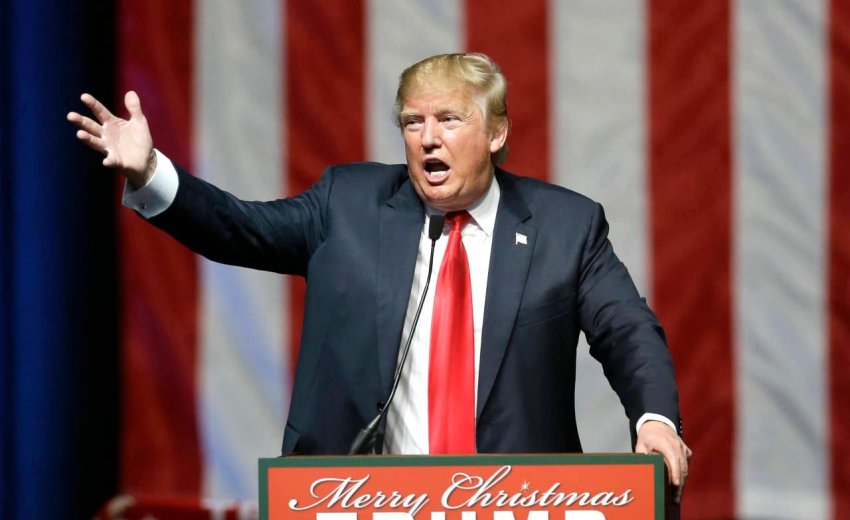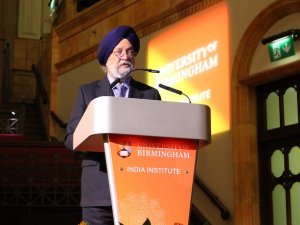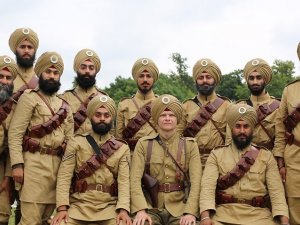We need to look at Donald Trump’s victory in the US Presidential election through two lenses.
Firstly, its impact on the global order as a whole, and secondly at the implications for the Sikhs in the US and other Western countries as a significant visible minority community.
Sikhs are already the victims of mistaken identity since 11 September 2001 and later terrorist attacks in the US and Europe.
First, regarding the global order, political analysts tell us that when Trump becomes the next President of the US, the post-World War II global order will be “threatened”. That seems to imply that the present global order is necessarily good for the future of humankind. For example, how does it compare with what Guru Nanak Dev ji saw towards the end of the 15th Century. Bhai Gurdas wrote that Guru ji meditated and saw a burning world (“Baba dekhay dhian dhar, jalti sabh prithami dis aaee.”). Would Guru ji approve the world order that we have today?
The fact is that the situation has hardly improved. Globally, the world is an even more dangerous place while the rich/poor divide is almost unbridgeable with an increasing world population. Global economic, political, religious, social and environment challenges seem almost insurmountable. Local conflicts and problems have become global in an ever shrinking world. The Middle East is torn by war. Large countries like Russia, China, India, Pakistan and even smaller nations like North Korea, pose threats to neighbours or face internal problems. The African countries have own problems due to mis-government. There are mass migrations of people.
To quote a Sky News article, “Donald Trump has shown little interest in the institutions painstakingly set up after World War Two and spoken blithely of ripping up trade agreements and undermining western alliances.” However, Trump is a businessman. President Trump can be a different person from Presidential candidate Trump. He will mellow once faced with the realities of office and his inability to deliver the some promises. Some trends are not reversible e.g. the decline of manufacturing industries and resultant loss of jobs in some parts of the country.
On the other hand, some questions he has raised are timely and cannot be bad for world order which needs a thorough revision. America should not be expected to police the world and be expected to pay most in terms of costs and manpower. Defence blocks like NATO may not be necessary. All countries should take responsibility and contribute towards world peace and defence of human rights through the United Nations.
Oil-rich Islamic countries like Arabia should be paying for or giving shelter to refugees from neighbouring countries. Immigration policies do need a review at global level to ensure smooth integration of migrants with local communities. Nuclear proliferation and environment issues need global and not American solutions. So, we shall have to wait and see how Trump conducts himself in office to undo the damage he has done during his elect campaign.
Donald Trump's victory signifies a deeply divided nation along racial/ethnic and gender lines. It is worrying that he was able to exploit traditional white supremacist prejudices. Much damage to national unity has already been done and minorities like the Sikhs are apprehensive.
There are also potential implications for American democracy, which has lost much credibility in the eyes of the world. It seems Americans are fearful of each other and of the rest of the world and are moving towards a “fortress America” mentality. To quote an analyst, “More seriously, he has encouraged millions of devout followers to believe American democracy is rigged against them.” Some even predict “possible end of western civilisation.”
However, it is doubtful if America, driven by wealth accumulation and less caring type of consumerism and capitalism, represents the best of western civilisation. In fact, American history so far is no proof that it is a very civilised nation. The native Americans have nearly been wiped out and the American blacks, originally brought in as slaves, have suffered over the centuries. It is true that it has been a land of opportunity for many diverse communities, but with increasing unemployment and diminishing resources, that can change. If minorities' rights are not safeguarded it can lead to social unrest.
The Trump victory is not good news for visible communities like the Sikh Americans already suffering as a result of mistaken identity. Even before Trump victory, Sikhs have been targets of hate crimes since 9/11. To quote Dr. Rajwant Singh, Chairman of the Sikh Council on Religion and Education, “The election results are unbelievable and are unsettling for many…..Donald Trump’s rhetoric throughout the campaign has made many racial and religious minorities very nervous and this election outcome has shocked them further.”
A recent circular by the charity, United Sikhs, quoted attorney Tejinder Singh Bains, who said, “it would be a tragedy for the Sikh community if because of Trump’s choices the standard under which government can infringe upon religious rights were to change for the worse.” United Sikhs are concerned that, “Reversal of recent progressive laws and policies could mean that Sikhs and other communities could be forced to continue to compromise rights in order to obtain or hold jobs or even to be allowed to participate in civic life.” They are hoping for a diverse Trump Cabinet which can moderate his extreme right policy. The signs so far are not very encouraging.
Hiding is not an option for visible communities like the Sikh Americans.
In fact, they need to be even more visible and participative in the life of the nation. Some years ago, a research paper by the Policy Studies Institute in the UK concluded that black and coloured communities do not have the option to hide. For them the only option is a more direct approach which announces and promotes their distinct cultural identities, albeit, in a spirit of unity in diversity.
Donald Trump is more likely to respect and respond to a direct approach. He is a realist and must know that the clock cannot be turned back regarding minority rights.





